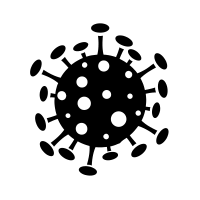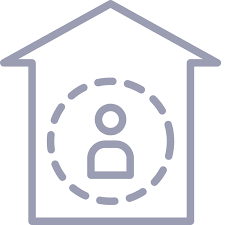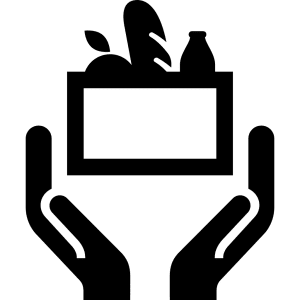COVID-19 Mitigation Practices at SEEC
COVID-19 is something we all have to deal with in our daily lives. To that end, we at SEEC continue to practice safe health and wellness to mitigate the risks, but we also believe the people we support need to continue to live, work and thrive in their communities.
SEEC’s COVID-related practices have been driven mostly by CDC recommendations, in alignment with both state of Maryland and Montgomery County’s additional guidelines. These core practices center on 3 main areas:

Vaccination

Person-centered Risk-adjusted Practices

Fundamental Good Health Practices
 To date, it is clear the single biggest factor in mitigating the risk of severe disease and illness from Covid is being vaccinated. As we all remember, in late winter/early spring of 2021, SEEC held three clinics to ensure people supported, staff and family members were able to get vaccinated as quickly as possible. We continue to work with the local authorities when new boosters are rolled out to ensure staff and people supported know about their availability and have the capability to get them administered.
To date, it is clear the single biggest factor in mitigating the risk of severe disease and illness from Covid is being vaccinated. As we all remember, in late winter/early spring of 2021, SEEC held three clinics to ensure people supported, staff and family members were able to get vaccinated as quickly as possible. We continue to work with the local authorities when new boosters are rolled out to ensure staff and people supported know about their availability and have the capability to get them administered.
We work closely with those supported in their homes to encourage maintaining full vaccination regime, along with boosters as guided by CDC and local authorities. We do this, of course, in concert with the person’s primary care physician to ensure one’s health is not jeopardized. In addition, we continue to require that all current and new staff have the primary series of vaccinations. Although the booster series has not been mandated, we continue to educate staff through trainings and all-staff communications on the importance of the latest vaccination recommendations and encourage staff to stay up to date. At this time, many staff are boosted.
 As many of you are aware, we support a wide array of persons at SEEC, with a wide array of health backgrounds and wellness profiles. To ensure the least restrictive approach, we review support needs based on the person first and understand their level of risk tolerance for the current situation. We support many people whose health risk is deemed high, and as such, we take the most precautions by masking in the home, having limited interaction with large groups, and limited visits in their homes.
As many of you are aware, we support a wide array of persons at SEEC, with a wide array of health backgrounds and wellness profiles. To ensure the least restrictive approach, we review support needs based on the person first and understand their level of risk tolerance for the current situation. We support many people whose health risk is deemed high, and as such, we take the most precautions by masking in the home, having limited interaction with large groups, and limited visits in their homes.
However, we believe most of the people we support want to live their lives, go to work, and enjoy their community. So, we feel strongly that we need to support people with the least restrictive practices and take calculated risks. For example, some of the people we support recently took a vacation to the beach, something they’ve done every year up until 2020. This did require traveling with masks, limiting eating out to outdoor venues and maintaining as much space as possible when out in public places. These practices are determined by the person supported and their team, in accordance with guidance from our nurse and their primary care physician when necessary.
Such practices may include:
- Avoiding activities with large crowds indoors AND outdoors
- Utilizing readily available KN95 masks when unable to observe social distancing, such as on planes, in airports, and indoor activities
- Limiting indoor dining, and eating outside when feasible
- Limiting guests with unknown vaccination status to homes
- Remembering to wash hands thoroughly before eating and when returning home from an outing.
- Our teams take seriously the basic health and safety practices within our services. These are core to the services we provide and the training we offer our staff. Each staff member receives an extensive array of trainings. These include:
- COVID Safety Practices
- Basic Hand Washing
- First Aid
- CPR
- Handling of Personal Protection Equipment (PPE)-for basic first aid as well as for COVID
- Universal Precautions

In addition, to the fundamental health and safety education that all staff receive, we continue to train all new staff, and refresh existing staff on our COVID protocols. SEEC leadership and our Nursing and Wellness team provide periodic updates and guidance using multiple channels such as our all-staff calls, team and department meetings, emails, and Teams Chat lines.
These practices cover the following areas:
- Latest data related to COVID-trends, variants, signs and symptoms, etc.
- Latest updates on vaccination and booster guidelines
- Review of practices to mitigate getting COVID such as social distancing, use of masks, etc.
- Practices around the use of PPE (Personal Protection Equipment)
- Quarantine and Isolation practices, timelines, testing protocols (in accordance with CDC)
- Communication and reporting practices
COVID-19 Management
Although prevention and mitigating risk are important to containing COVID, we all recognize now that getting COVID may be a realistic aspect of life in the community. As such, it is critical how we manage COVID once someone is infected. Again, SEEC has employed the recommendations from CDC and state/local authorities with respect to managing the disease for our staff and the people we support.
Key Steps:
 Experiencing symptoms is often the key indicator that we have COVID. Although asymptomatic cases exist, we can better manage the spread, as well as our own health, by daily monitoring of symptoms. Staff regularly are monitoring themselves and the people they support for obvious symptoms (again updated as variants produce new symptomatic reactions) and taking precautions when symptoms emerge.
Experiencing symptoms is often the key indicator that we have COVID. Although asymptomatic cases exist, we can better manage the spread, as well as our own health, by daily monitoring of symptoms. Staff regularly are monitoring themselves and the people they support for obvious symptoms (again updated as variants produce new symptomatic reactions) and taking precautions when symptoms emerge.
 At this time, SEEC is following the CDC guidelines and ONLY if/when symptoms emerge are staff and people, we support encouraged to take steps (testing and possibly quarantining). Many people are being exposed at these ‘spike’ times of the pandemic; however, not all are becoming infected, so we must rely on symptom checking AND/OR testing to further manage.
At this time, SEEC is following the CDC guidelines and ONLY if/when symptoms emerge are staff and people, we support encouraged to take steps (testing and possibly quarantining). Many people are being exposed at these ‘spike’ times of the pandemic; however, not all are becoming infected, so we must rely on symptom checking AND/OR testing to further manage.
![]() Once symptoms emerge, SEEC staff and the people we support are reminded to get tested. Not all symptoms are COVID-related. It’s important to rule out COVID so people can continue with their lives. SEEC has accumulated an array of rapid antigen and PCR tests that are available for people unable to find tests in the community easily. At this time, SEEC does not recommend testing when one has been potentially exposed, but no symptoms emerge.
Once symptoms emerge, SEEC staff and the people we support are reminded to get tested. Not all symptoms are COVID-related. It’s important to rule out COVID so people can continue with their lives. SEEC has accumulated an array of rapid antigen and PCR tests that are available for people unable to find tests in the community easily. At this time, SEEC does not recommend testing when one has been potentially exposed, but no symptoms emerge.
Use of the rapid antigen, “over the counter”/”15 minute” tests is often used and based on current reliability data can be very accurate. However, sometimes people may be advised by their health care practitioner to get an additional PCR test should rapid tests prove negative but symptoms persist.
a. Negative Test Result-staff and people we support are encouraged to mask up but continue their day-to-day routines and supports. However, we remind ALL staff and people no matter the result of a test, if you feel sick stay home as this is a good health practice.
b. Positive Test Result-ALL Staff and people we support are immediately informed that they need to isolate at home and not participate in in-person SEEC activities (supports, etc.). As CDC recommends, isolating from others in your home is the best strategy to mitigate risk to others. All staff and people we support are informed they may return to work/supports on Day 5 after the onset of the symptoms/or positive test result (whichever is earliest), and they are symptom free.
 All staff and people supported are immediately informed they should isolate at home after a positive test result. Day 0 is the first day of testing positive OR the first day of the emergence of symptoms. Staff and people supported should remain isolated through 5 days and return to normal activities on Day 6. Returning to normal activities can only occur if the person wears a good quality KN95 mask for an additional 5 days.
All staff and people supported are immediately informed they should isolate at home after a positive test result. Day 0 is the first day of testing positive OR the first day of the emergence of symptoms. Staff and people supported should remain isolated through 5 days and return to normal activities on Day 6. Returning to normal activities can only occur if the person wears a good quality KN95 mask for an additional 5 days.
 SEEC has the responsibility of reporting ALL positive tests to Maryland Department of Health. This procedure follows the usual incident reporting process SEEC has utilized for many years, whereby incidents are reported through the team leadership, and our Knowledge Management team informs state officials of “reportable” incidents. We continue to follow this procedure, in accordance with MD Department of Health requirements. SEEC maintains an internal tracking system for all cases. This tool helps us ensure that people supported and staff who have to isolate do not return to work/services prior t0 the CDC guidelines.
SEEC has the responsibility of reporting ALL positive tests to Maryland Department of Health. This procedure follows the usual incident reporting process SEEC has utilized for many years, whereby incidents are reported through the team leadership, and our Knowledge Management team informs state officials of “reportable” incidents. We continue to follow this procedure, in accordance with MD Department of Health requirements. SEEC maintains an internal tracking system for all cases. This tool helps us ensure that people supported and staff who have to isolate do not return to work/services prior t0 the CDC guidelines.
 SEEC will communicate with family members if the person supported tests positive for COVID while in service and will offer support including PPE and other resources. If the person is in the Supported Living department, SEEC will provide updates on service and wellness status. We strongly encourage families to report the positive COVID test results of their family member to SEEC as soon as feasible, as it’s important for reporting purposes, as well as understanding risks for others in the community. At this time, SEEC will advise families/persons supported should their staff be out sick, per usual practices, however, will rely on staff approval to share when illness is COVID-related.
SEEC will communicate with family members if the person supported tests positive for COVID while in service and will offer support including PPE and other resources. If the person is in the Supported Living department, SEEC will provide updates on service and wellness status. We strongly encourage families to report the positive COVID test results of their family member to SEEC as soon as feasible, as it’s important for reporting purposes, as well as understanding risks for others in the community. At this time, SEEC will advise families/persons supported should their staff be out sick, per usual practices, however, will rely on staff approval to share when illness is COVID-related.
 SEEC prides itself in having an always able and ready to support workforce no matter the challenges. Our Supported Living team is prepared to support the persons in their program at the same level despite Covid, or other illnesses that may impact the person or their staff. Supported Living continues to monitor homes where people supported, their roommates and/or staff are isolating, and our nursing team will observe persons supported regularly to ensure continued recovery. The Supports Coordinator works closely with people’s staff to ensure all ongoing supports and services are provided safely.
SEEC prides itself in having an always able and ready to support workforce no matter the challenges. Our Supported Living team is prepared to support the persons in their program at the same level despite Covid, or other illnesses that may impact the person or their staff. Supported Living continues to monitor homes where people supported, their roommates and/or staff are isolating, and our nursing team will observe persons supported regularly to ensure continued recovery. The Supports Coordinator works closely with people’s staff to ensure all ongoing supports and services are provided safely.